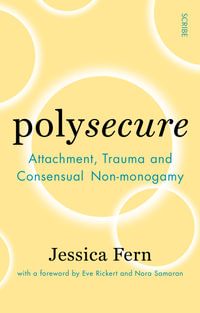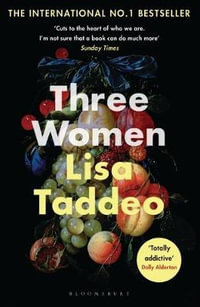The press called Martin's actions a "crime spree." Already convicted of armed robbery, Martin was facing the death penalty. In less than two weeks the jury would decide his fate. Terrified that his son would be sentenced to die, Phillip did the only thing he felt he could do: in an act of faith and desperation in his garage with the car exhaust running, Phillip made the consummate sacrifice to spare his son the ultimate punishment. Ironically, his suicide presented Martin's with another chance at life; the jury, moved by Martin's loss, spared his life.
Phillip's story-like those of the other parents, siblings, children, and cousins chronicled in this book-vividly illustrates the precarious position family members of capital offenders occupy in the criminal justice system. At once outsiders and victims, they live in the shadow of death, crushed by trauma, grief, and helplessness. In this penetrating account of guilt and innocence, shame and triumph, devastating loss and ultimate redemption, the voices of these family members add a new dimension to debates about capital punishment and how communities can prevent and address crime.
Restorative justice theory, which views violent crime as an extreme violation of relationships; searches for ways to hold offenders accountable; and meets the needs of victims and communities torn apart by the crime, organizes these narratives and integrates offenders' families into the process of transforming conflict and promoting justice and healing for all. What emerges from hundreds of hours' worth of in-depth interviews with family members of offenders and victims, legal teams, and leaders in the abolition and restorative justice movements is a vision of justice strongly rooted in the social fabric of communities. Showing that forgiveness and recovery are possible in the wake of even the most heinous crimes, while holding victims' stories sacred, this eye-opening book bridges the pain of living in the shadow of death with the possibility of a reparative form of justice.
Anyone working with victims, offenders, and their families-from lawyers and social workers to mediators and activists-will find this riveting work indispensable to their efforts.
Industry Reviews
"The staggering toll of human misery that unfold in these pages is more than sobering; it is terrifying. The authors' plea for restorative justice that runs through their book is reassuring; it shows that there are constructive strategies and tactics within our reach if only the will and the funding are available to implement them."--Hugo Adam Bedau, Austin Fletcher Professor Emeritus of Philosophy, Tufts University, and editor of The Death Penalty in
America: Current Controversies
"Increasingly, though belatedly, we are learning something about what families experience and need when a loved one is murdered. Various studies have probed the lives of those on death row because they have been convicted of murder. But what do we know about the families of those on death row? What do they go through, and how do they fit into the picture? Using restorative justice as analytic framework, In the Shadow of Death lifts the needs and
experiences of those family members out of the shadows and explores their place in the justice equation."--Howard Zehr, Co-Director, Center for Justice and Peacebuilding, Eastern Mennonite University, and author
of Changing Lenses: A New Focus for Crime and Justice
"This is an important book that lifts the concept of restorative justice off its pages and into the hearts and minds of all who will read it. Beck, Britto, and Andrews have given us the tools; now it is up to us to take it to the people."--Ajamu Baraka, US Human Rights Network
"The family members of those sentenced to death have been either vilified or ignored. This book makes an enormous step toward changing that by presenting some of their compelling stories and making their voices part of the debate about capital punishment and about our commitment to a just, decent, and compassionate society."--Stephen Bright, Southern Center for Human Rights
"By boldly proposing the application of restorative justice principles to capital crimes, the authors provide hope that we can break the cycle of violence and make some good come out of the devastation murder brings to victims and offenders families, and even the offenders themselves and society in general. As one of two children (my brother is the other) in American history to have had both parents executed, I applaud this effort."--Robert Meeropol, son of
Ethel and Julius Rosenberg and Executive Director, Rosenberg Fund for Children
"The death penalty is often seen as 'the big fix.' Timothy McVeigh's execution did not bring my daughter Julie back or fix anything. This book recognizes how 'the big fix' mentality is dramatically oversimplified and honestly discusses the consequences of murder to victims' family members and of the death penalty to offenders' family members."--Bud Welch, Murder Victim Families for Human Rights
"This is a must-read for anyone involved in the mental health profession as well as attorneys and law students who enter the mire of these broken lives. This book unearths the humanity that is often missing in death penalty trials."-- Scharlette Holdman, Center for Capital Assistance
"This book should be required reading for professionals who work with persons who suffer from the wrongdoing of family members and for anyone considering whether the net benefit of the death penalty outweighs its costs."--Sheri Lynn Johnson, Cornell Death Penalty Project
"A compelling study of how capital punishment affects the lives of families members of men and women who are on Death Row in the United States...The authors detail innovative methods of countering the institutional failures of education and mental health in the lives of offenders and their families."--Justice Connections
"Well written and compelling, this book is not for the faint of heart or for those who cannot accept the realities of social policy that is iatrogenic rather than healing, but it is a must read for those who desire justice for all those affected by the use of the death penalty,"--Choice
"The staggering toll of human misery that unfold in these pages is more than sobering; it is terrifying. The authors' plea for restorative justice that runs through their book is reassuring; it shows that there are constructive strategies and tactics within our reach if only the will and the funding are available to implement them."--Hugo Adam Bedau, Austin Fletcher Professor Emeritus of Philosophy, Tufts University, and editor of The Death Penalty in
America: Current Controversies
"Increasingly, though belatedly, we are learning something about what families experience and need when a loved one is murdered. Various studies have probed the lives of those on death row because they have been convicted of murder. But what do we know about the families of those on death row? What do they go through, and how do they fit into the picture? Using restorative justice as analytic framework, In the Shadow of Death lifts the needs and
experiences of those family members out of the shadows and explores their place in the justice equation."--Howard Zehr, Co-Director, Center for Justice and Peacebuilding, Eastern Mennonite University, and author
of Changing Lenses: A New Focus for Crime and Justice
"This is an important book that lifts the concept of restorative justice off its pages and into the hearts and minds of all who will read it. Beck, Britto, and Andrews have given us the tools; now it is up to us to take it to the people."--Ajamu Baraka, US Human Rights Network
"The family members of those sentenced to death have been either vilified or ignored. This book makes an enormous step toward changing that by presenting some of their compelling stories and making their voices part of the debate about capital punishment and about our commitment to a just, decent, and compassionate society."--Stephen Bright, Southern Center for Human Rights
"By boldly proposing the application of restorative justice principles to capital crimes, the authors provide hope that we can break the cycle of violence and make some good come out of the devastation murder brings to victims and offenders families, and even the offenders themselves and society in general. As one of two children (my brother is the other) in American history to have had both parents executed, I applaud this effort."--Robert Meeropol, son of
Ethel and Julius Rosenberg and Executive Director, Rosenberg Fund for Children
"The death penalty is often seen as "the big fix." Timothy McVeigh's execution did not bring my daughter Julie back or fix anything. This book recognizes how "the big fix" mentality is dramatically oversimplified and honestly discusses the consequences of murder to victims' family members and of the death penalty to offenders' family members."--Bud Welch, Murder Victim Families for Human Rights
"This is a must-read for anyone involved in the mental health profession as well as attorneys and law students who enter the mire of these broken lives. This book unearths the humanity that is often missing in death penalty trials."-- Scharlette Holdman, Center for Capital Assistance
"This book should be required reading for professionals who work with persons who suffer from the wrongdoing of family members and for anyone considering whether the net benefit of the death penalty outweighs its costs."--Sheri Lynn Johnson, Cornell Death Penalty Project
"A compelling study of how capital punishment affects the lives of families members of men and women who are on Death Row in the United States...The authors detail innovative methods of countering the institutional failures of education and mental health in the lives of offenders and their families."--Justice Connections
"Well written and compelling, this book is not for the faint of heart or for those who cannot accept the realities of social policy that is iatrogenic rather than healing, but it is a must read for those who desire justice for all those affected by the use of the death penalty."--Choice
























